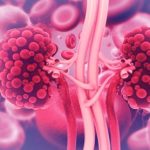The future prospects of cell
and gene therapy

Kidney Disease
Role of Cell and Gene Therapy in Kidney Disease
- Polycystic Kidney Disease (PKD)
- Gene Therapy:
- Gene Correction: PKD is caused by mutations in the PKD1 or PKD2 genes. Gene therapy aims to deliver functional copies of these genes to kidney cells using viral vectors such as adeno-associated virus (AAV) or lentivirus. This approach can restore normal function and prevent cyst formation. Preclinical studies have shown that gene therapy can reduce cyst growth and preserve kidney function.
- RNA Interference (RNAi): RNAi techniques are used to silence the expression of mutant PKD genes. By delivering small interfering RNA (siRNA) or short hairpin RNA (shRNA) specifically targeting the mutant genes, it is possible to reduce the abnormal cell proliferation and cyst formation associated with PKD.
- Gene Therapy:
- Cell Therapy: Mesenchymal stem cells (MSCs) have shown potential in treating PKD by reducing inflammation and fibrosis. MSCs can secrete anti-inflammatory and antifibrotic factors that help preserve kidney function and slow disease progression.
- Acute Kidney Injury (AKI)
- Gene Therapy: Gene therapy can deliver genes encoding for growth factors such as VEGF (Vascular Endothelial Growth Factor) and HGF (Hepatocyte Growth Factor) to promote kidney repair and regeneration following acute injury. These factors help enhance blood flow, reduce inflammation, and stimulate cell proliferation.
- Cell Therapy:
- Renal Progenitor Cells: Transplanting renal progenitor cells can aid in the repair of damaged kidney tissue. These cells have the potential to differentiate into various kidney cell types and promote tissue regeneration.
- Mesenchymal Stem Cells (MSCs): MSCs are known for their regenerative and immunomodulatory properties. Infusing MSCs into patients with AKI can help reduce inflammation, promote tissue repair, and improve kidney function. Clinical trials have shown promising results in reducing the severity and duration of AKI.
- Chronic Kidney Disease (CKD)
- Gene Therapy: Gene therapy can deliver genes encoding for antifibrotic proteins to the kidneys to reduce fibrosis and slow the progression of CKD. For example, delivering genes that encode for decorin or BMP-7 (bone morphogenetic protein-7) can help inhibit the fibrotic process and promote tissue repair.
- Cell Therapy:
- Mesenchymal Stem Cells (MSCs): MSCs have shown promise in treating CKD by reducing inflammation and fibrosis, promoting tissue repair, and improving kidney function. Clinical trials have reported that MSC therapy can slow disease progression and enhance renal function in CKD patients.
- Induced Pluripotent Stem Cells (iPSCs): iPSCs can be differentiated into renal progenitor cells and used for regenerative purposes. These cells have the potential to replace damaged kidney cells and restore normal function.
- Renal Fibrosis
- Gene Therapy: Gene therapy targeting TGF-β (Transforming Growth Factor-beta) signaling pathways can reduce fibrosis in the kidneys. Delivering genes that encode for inhibitors of TGF-β can prevent the progression of renal fibrosis and preserve kidney function.
- Cell Therapy: MSCs and other types of stem cells can help reduce fibrosis and promote tissue repair. These cells secrete various factors that inhibit fibrotic pathways and support the regeneration of healthy kidney tissue.
